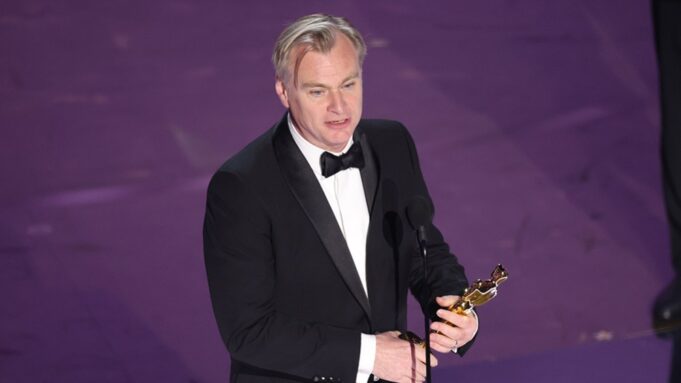The movies, if I dare say it, used to hold us together. They were a shared dream — which is why I wanted to become a film critic, not a poetry critic. The mass mythology of movies felt singular, intoxicating, enveloping, cathartic. And the Oscars have always been part of that. In embracing the world of movies, they seemed to embrace the whole world, period.
But less so recently. We live in a splintered time, with everything divided into niches, clubs, cults, and opposing sides that don’t speak to each other. When it comes to entertainment, there are so many options that it now feels like too many. Yet the staggering success of “Oppenheimer” reminded us of how all that could come back together. A subject of transcendent importance (the creation of the atomic bomb, and the aftermath of that ultimate Faustian science experiment). A drama of stunning ambition and audacity. And an audience of staggering size, enthralled around the globe. That’s more than just success. That’s the grand dream of movies. And the Oscars, in honoring “Oppenheimer” with seven awards, did their part to channel that dream and to let us to revel in what’s great about it.
It was an old-school juggernaut — the kind of sweep we used to see regularly, for movies like “Out of Africa” or “The Deer Hunter” or “Schindler’s List.” But over the last 25 years, ever since “Titanic” (1997) represented the dream of movies we’ve been trying, as a culture, to hang onto, there have been very few Oscar evenings celebrating films that were both titanic megahits and true works of art. Many would say “The Lord of the Rings: The Return of the King” qualifies (though I’d personally classify that as a rare instance of the Oscars honoring popcorn fantasy).
Since then, it’s mostly been smaller films (“No Country for Old Men,” “Parasite,” “Nomadland”) or larger ones (“Slumdog Millionaire,” “Argo”) that didn’t exert the kind of transporting cultural clout that “Oppenheimer” did. That made this year a throwback that doubled as a hope for the future.
For all the impeccable staged enthusiasm, there was a way that the Oscars this year, in being dominated by “Oppenheimer,” took their emotional cue from that film’s winners — which meant a certain classy British reticence on the part of Christopher Nolan and his wife and producing partner, Emma Thomas, a quality that extended to Cillian Murphy’s humble professionalism and proud shoutout to his Irish roots in his acceptance speech for best actor. None of these winners went for broke in their words. Robert Downey Jr. came closest, though he too, in his trademark personal way, received his award with the kind of cool polish that comes of having already been canonized, by the Oscar-industrial complex, as the winner.
In that sense, it took Emma Stone to carry the evening’s emotions to a pitch of high drama. “Poor Things” won four Oscars, but three of them were for its visual bravura (hair and make-up, production design, and costumes). Stone seemed genuinely surprised to have won best actress, which makes sense, since much of the smart money said that Lily Gladstone would win. Everything about Stone’s speech, starting with her reaction to her broken dress hook, had a spontaneous choked-up verve.
Accepting the best documentary award for “20 Days in Mariupol,” the film’s director, Mstyslav Chernov, said that “Cinema forms memories, and memories form history.” He’s right on both counts. He was talking about his film, and about the terrible and courageous war fought by his Ukrainian countrymen since the Russian invasion two years ago. Yet he could just as well have been talking about where the film industry needs to go as it moves toward an increasingly shaky future. That industry will thrive only when it remembers its true north, which is making movies that have the power to form memories and to form history, movies that can have the impact of an “Oppenheimer” because, in a word, they matter. The Oscars this year didn’t just remind the world of that mission. It reminded us of how good it feels when Hollywood actually lives up to it.
Love Film & TV?
Get your daily dose of everything happening in music, film and TV in Australia and abroad.
From Variety US































